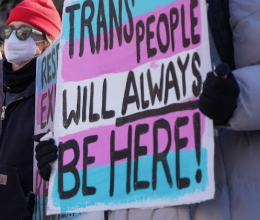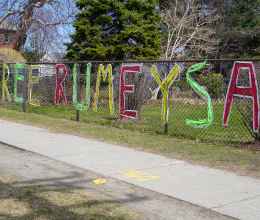
The ACLU of Massachusetts today called on the Ludlow School Committee to reject a proposed school library policy that would impose sweeping and unjustifiable restrictions on learning materials and could effectively restrict access to LGBTQ-themed books. The proposed policy raises numerous legal issues, including free expression, vagueness, and discrimination concerns under the state and U.S. constitutions, according to a new ACLU letter.
The proposed policy would make acquisition of any new or replacement library materials subject to prior review and approval by the Superintendent and, after public input, the School Committee. It would set extremely vague, overbroad, and repressive standards for what materials can and cannot be in public school libraries, including by banning library materials with “sexualized content” – a term that is not defined in the policy but apparently includes innocuous and age-appropriate materials, such as pictures of fully clothed men engaged in sports or dance or even a child sitting on the lap of a fully clothed parent. School district employees who do not follow the policy could be terminated. The policy is modeled on a similar one in a Pennsylvania county that is a thinly veiled effort to censor LGBTQ-themed materials.
“Across the country, there is a coordinated attack on students’ right to learn. Such efforts have no place here in Massachusetts, where our laws protect against these regressive measures,” said Ruth Bourquin, senior and managing attorney at the ACLU of Massachusetts. “Under this proposed policy, images and descriptions of Adam and Eve in the Garden of Eden would be categorically banned from elementary school library materials, and librarians seemingly could be fired for choosing to introduce elementary students to the joy of ballet by showing them male ballet dancers performing the Nutcracker. We urge the Ludlow School Committee to reject this proposed policy, and hope other local officials take note. Such policies undermine students' right to receive an accurate, inclusive education and pave the way for unlawful discrimination.”
Across the country, a vocal minority are pushing to ban books from school and public libraries. According to the American Library Association, book challenges nearly doubled in 2022, after a sharp increase in 2021. The Massachusetts School Library Association began collecting its own state data because of the increase; there have been at least 22 book challenges in the Commonwealth since fall 2022. Most of these efforts specifically aim to remove books that are by and about LGBTQ people, communities of color, and other marginalized groups.
For more information about the ACLU of Massachusetts, go to: www.aclum.org

